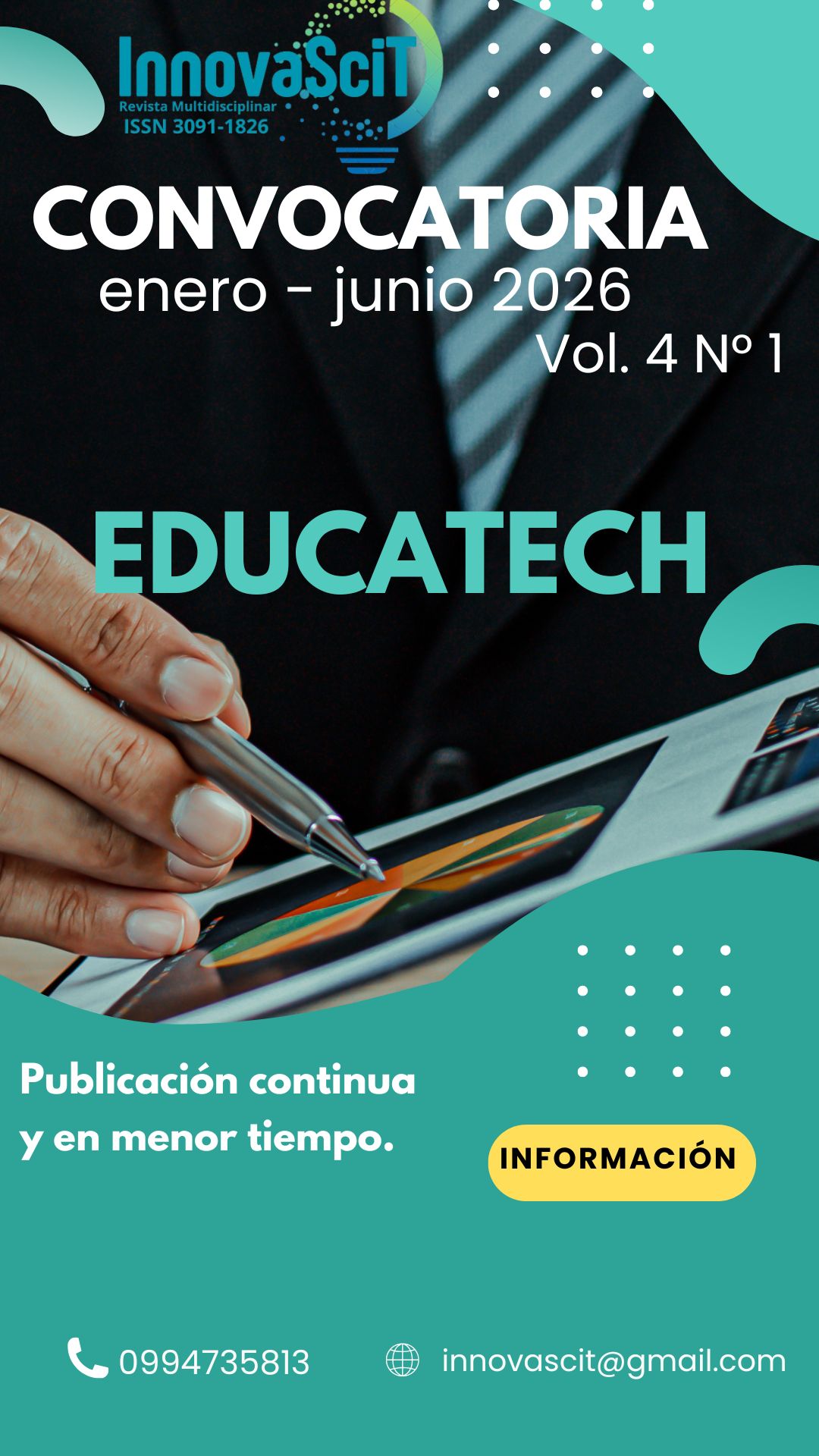Innovative pedagogical strategies for strengthening multiliteracies competencies in English language teaching in Ecuador
Estrategias pedagógicas innovadoras para el fortalecimiento de competencias en multialfabetización en la enseñanza del idioma inglés en Ecuador
DOI:
https://doi.org/10.70577/innovascit.v3i1.25Palabras clave:
English language teaching, multiliteracies, pedagogical strategies, educational innovation, intercultural education.Resumen
English language teaching in Latin American educational contexts faces the challenge of adapting to 21st-century demands through pedagogical approaches that promote holistic learning. Within this framework, multiliteracies emerge as an innovative perspective that acknowledges the diversity of languages, media, cultures, and forms of representation involved in communication processes. This article examines the impact of innovative pedagogical strategies aimed at strengthening multiliteracies competencies in English language instruction within Ecuadorian educational institutions. Through a documentary review of academic research, practical experiences, and contemporary pedagogical models, the study identifies active methodologies, technological resources, and collaborative practices that enhance the construction of meaningful, inclusive, and culturally relevant knowledge. The findings highlight the effectiveness of project-based learning, interactive digital platforms, and real-world contexts in fostering linguistic, discursive, critical, and intercultural skills. Furthermore, the systematic implementation of these strategies contributes to bridging access gaps, boosting student motivation, and improving communicative performance in a foreign language. The study concludes that multiliteracies should not be seen as an optional supplement but as an essential component for educational innovation in English language teaching, particularly in diverse, challenging, and rapidly changing socio-technological environments.










